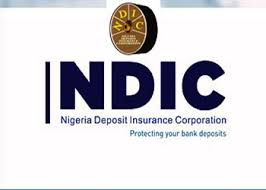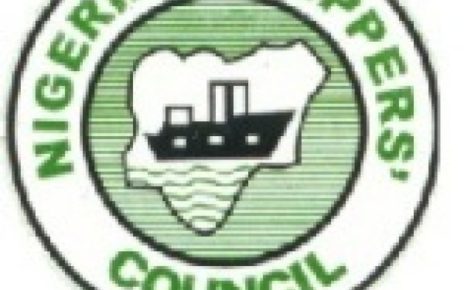The Nigeria Deposit Insurance Corporation (NDIC) has flawed the decision of the Investments and Securities Tribunal (IST) on case No. IST/OA/03/19 between Winners Medical Diagnostics Ltd and Ecobank, saying the Tribunal misconstrued and consequently misapplied the clear provisions of the relevant laws governing bank liquidation in Nigeria.
The corporation’s stance on the decision was expressed in a statement made available to the media, stressing that as the statutory liquidator of the All tates Trust Bank it would like to restate its position in the matter for record purposes.
The NDIC clarified that in carrying out its functions as a liquidator, it complied with the applicable laws in the realization and distribution of the assets of defunct banks, inclusive of Allstates Trust Bank”.
According to the NDIC, the applicable legislations comprise the Companies and Allied Matters Act [CAMA] 2020, Banks and Other Financial Institutions Act, [BOFIA] 2020, the NDIC Act 2006, Failed Banks Act (FBA) 1994, amongst others.
The corporation further pointed out that Bank liquidation required a specialized procedure when resolving a failed bank. The emphasis is on settlement of deposit liabilities above all other claims. On the priority of deposit liabilities over other liabilities of the bank, Section 55 of the Banks and Other Financial Institutions Act, 2020 provides as follows: “Where a bank is unable to meet its obligations or suspends payment or where its management and control has been taken over by the Bank [Central Bank of Nigeria] or where its license has been revoked under the provisions of this Act, the Assets of the bank shall be available to meet all the deposit liabilities of the bank and such deposit liabilities shall have priority over all other liabilities of the bank”. [Underlining ours for emphasis]
It maintained that the above provision of BOFIA was very clear and unambiguous as depositors of failed banks must, as a matter of law, be settled first before any other claimants as depositors rank first in the order of priority of claim.
In fact, sections 657 of CAMA and 55 of BOFIA jointly provide that claims in relation to the assets of a bank in liquidation would be applied in the following priority; Liquidation Expenses; Depositors Claims; Preferred Claims (as determined by CAMA); Equitable Charges; General Creditors and Return of capital to shareholders.
It stated: “For the purposes of clarity, please note the definition of the following terms, namely; deposit, depositor and creditor in relation to the business of banking.
Deposit: By virtue of section 59 of the NDIC Act, 2006, deposit “means monies lodged by depositors with any insured institution for safe keeping or for the purpose of earning interest, premium or dividend, whether or not re- payable on demand, upon a given period of time, or upon a fixed date, or at a time or in circumstances agreed by or on behalf of the depositor making the lodgment and the insured institution receiving it except as otherwise extended under this Act.”
The NDIC also said that the alleged Share/IPO Suspense account does not belong to the Claimant but was created by the defunct bank for its own use. The subscription fee does not therefore qualify as deposit as the Claimant did not open an account for any of the above purposes. As a matter fact, the Claimant has no account with the defunct bank. Put differently, the share/IPO subscription fee was not deposited into an account belonging to the Claimant.
“Depositor: “A depositor is a person who deposits money in a bank for safekeeping”. See The New International Webster Comprehensive Dictionary, [2013 edition], page 344. This presupposes that the person making the money deposit will have bank account with the bank.
“Creditor: A creditor according to The New International Webster Comprehensive Dictionary, [2013 edition] is “on [a person] to whom another is pecuniarily indebted.
“From the above definitions, it is crystal clear that the share/IPO subscription fee which was paid by the Claimant to the defunct bank for the allotment of shares only qualifies the Claimant as a creditor to the defunct bank as the subscription fee would be treated as money had and received by the defunct bank. Noteworthy is the undisputed fact that the Claimant was not a customer to the defunct bank but a subscriber to its shares which unfortunately were not allotted to it before the bank went under.
“It must be noted that the NDIC is not contending the indebtedness of the defunct bank to the Claimant in respect of the share/IPO subscription fee. Rather the position and contention of the NDIC is that the law on priority of claims must be strictly followed in the distribution of the assets of the defunct bank.
“In fact, to pay the Claimant herein as ordered by the Tribunal without following due process as prescribed by law would amount to illegality on the part of the liquidator [NDIC] as it would be a clear violation of the express provision of the laws quoted above. The Tribunal also erred when it ordered the NDIC in its corporate capacity to pay the Claimant the judgment sum. Any award of damages should be against the defunct bank as it is still a legal entity until dissolved and its name struck out of the register of companies at the CAC.
“In view of the decision of the Honourable Tribunal, which was given per incuriam the Corporation will instruct its solicitors to appeal the judgment to the Court of Appeal.
The IST had earlier given judgment in favour of the plaintiff to the tune of N5m at 2% interest above the CBN MRR from March 2006 when NDIC took over All States Trust Bank until the full payment of the principal sum. It also awarded a cost of N500, 000.00 in favour of Winners Medical Diagnostic & Research Institute




